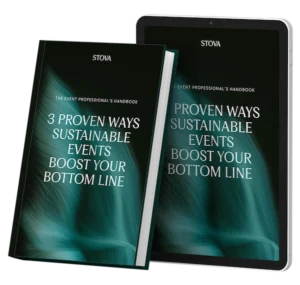What Event Support Do You Need? DIY vs Full-Scale
March 21, 2024
The ability to service your stakeholders and deliver excellent events hinges on your event technology working for you and working consistently. Ensuring that your team can both use the technology to its fullest and without having to significantly up-skill is essential. That means comprehensive support and customer service.
While event professionals know that quality support is a key piece of the puzzle, there are a lot of factors to consider when vetting technology partners for it.
What questions should you ask them to ensure that they meet your standards? What questions do you need to answer internally to figure out what you need?
In this article, we’ll delve into the practical event tech support-related considerations to keep in mind when selecting and evaluating event technology solutions.

DIY or Full-Scale Service: Do You Need the ‘White Glove’ Experience?
Will you be managing the implementation of your event technology yourself? Or perhaps you’re looking for a tech provider who offers the execution as a managed service?
If you’re not sure what makes more sense for your event, these are a few questions you can use to start thinking through the problem.
- What is your budget?
Balancing cost-effectiveness with service quality is essential.
Managed services typically come at an extra cost. This cost has to be weighed against the cost to your organization of having you or someone on your team spend the time learning the product, implementing the solution, and managing it through to the end of the event. This cost can also be offset somewhat by the valuable (albeit less tangible) peace of mind you gain by having the experts – the tech provider themselves – implement their solution for you.
- Does your team have the resources and competencies?
It takes time and a basic understanding of event technology to get a solution event-ready. For example, managing content within a mobile event app or virtual event platform may require formatting data within spreadsheets, uploading them within a content management system, and talking to a mix of internal and external stakeholders (especially if your tech stack is composed of disparate solutions from multiple vendors). Does your team have the bandwidth to handle the task? Will additional resources or outsourcing be necessary?
If so, it might make more sense to hand the provider all your data and let them take care of it.
- How frequently do you host events? How big is your event program?
Consider the number of events you host annually and whether it might be more efficient for your tech provider to train your team to implement your event tech solutions across your program rather than budgeting for the managed service every time. The more events in the program, the more worthwhile it might be to allocate internal resources to manage the technology involved.
If you have enough events, it may even be worth asking your tech partner about a template you can use that contains event presets that match your branding, content, and other particulars.
Level 1: The Brass Tacks of Event Tech Support
To determine whether or not your technology partner can provide the level of support you need for your event portfolio, consider asking the following questions.
- “How and when can I reach you?”
Identify the available support channels (e.g. phone, email, live chat) and the hours when the support team is accessible. The event tech landscape has rapidly evolved and expanded internationally. Be sure to confirm that support is available at convenient times leading up to the event and when your event will be running on the day of.
Pro tip: If you’re operating outside of an English-speaking country, ask about bilingual support services. Many companies may not offer tech support in every language, but remote working has given rise to truly international teams. There may be someone on the team who speaks your language and can serve as a dedicated event support specialist.
| Stova support operates across the globe. If you need assistance, call our support lines for your region: Americas: +1-203-403-9470 EMEA: +44-118-207-6119 APAC: +61-2-8213-4258 Or email our support team at [email protected] |
- “Tell me about your time to first response and average time to resolution.”
Prompt response times are critical during event emergencies, of course, but they’ve pretty much become an industry standard the rest of the time as well. It’s not unusual – especially for companies that offer live chat – to expect a response from a real human within a few minutes.
This can be essential for your team’s work flows, especially if you’ve decided to implement the solution you purchased yourself. You don’t want every bug or issue to become a 24-hour bottleneck.
Pro tip: A thorough knowledge base can be the best way to find answers fast. Most tech providers have created resources around the most commonly asked questions – and have even obviated the need to go digging for them by offering a chatbot that guides you directly to the information you need. However, make sure you have access to the live channels in case you need an answer that you’re pretty sure won’t be in the knowledge base.
- “How many bugs do you fix per week on average?”
This question is about assessing both the frequency of bugs occurring and the platform’s track record in bug resolution.
Bugs are an inevitable part of any software, but high bug rates may indicate underlying issues with the technology’s reliability. These could be a product of trying to release too many features too quickly or having weak quality checking processes.
Pro tip: Ask about the platform’s downtime as well. Minimizing downtime is essential for preventing disruptions during events, so try to determine the platform’s uptime percentage.
- “What is the onboarding process like?”
If you are planning to manage the implementation of your event technology yourself, you’ll need to know how to operate it. While a given tech solution should be easy to use first and foremost, all new technologies will require some training.
Most providers will deliver this training in a personalized onboarding call from a support specialist, through tutorials from within the platform itself, or some combination thereof. If you have a preference, see if your tech partner will accommodate you.
Pro tip: If there will be more than one person managing the technology, it’s a good idea to let your tech partner know in advance so they can deliver this training as efficiently as possible and make sure everyone on your team is on the same page. This may entail making sure everyone is on the training call, or recording it and calling out particular parts that specific people will be responsible for.

Level 2: Elevating Expectations
- “How does your solution support integrations with other tools?”
Seamless integrations enhance the efficiency of your workflows and data management. If you’re tech stack is a compilation of single-vertical tech providers, you will need to determine any addition’s compatibility with your existing event tech stack. Each different solution you use will have its own data stored separately (in a “data silo”). You’ll need to make sure each tool can talk to the others, pulling and sharing data as needed.
Pro tip: Many providers play well with others as a matter of policy and will have built-in integrations with other common solutions, like your customer relationship management (CRM) solution or marketing technology (Hubspot, Marketo, etc.). Others may offer API documentation so you can set up integrations yourself, or do this for you for a fee.
- “Do you offer dedicated onsite/day-of support?”
Having knowledgeable personnel onsite to address issues swiftly and ensure an uninterrupted event flow can be a significant advantage. While this type of white-glove service typically comes at an additional cost, it can be offset somewhat by lessening the load on the event team and allowing them to focus on other tasks.
Pro tip: Onsite event tech support can be particularly helpful if you’re using a mobile app, event game, or any other real-time engagement feature where users might run into challenges. Leverage your dedicated support representative to answer user questions and provide onsite training where needed.
- “How customizable is your solution?”
Be sure to assess the flexibility of the platform in accommodating customizations to meet specific event requirements. These customizations can range from basic branding capabilities offered by most reputable providers to much more complex bespoke solutions. The more advance notice you give your tech partner, the higher the likelihood they will be able to accommodate you or help you to find a workable solution.
Pro tip: It’s important to remember that the more bespoke the customization (i.e. the more custom development the provider needs to invest), the less tested and more error-prone the implementation can be. It’s better to work with your provider to determine how existing solutions can best suit your goals.
- “Can you share any references from other clients in our category who have used your solution in a similar way?”
Seek feedback from existing users and inquire about their experiences with support services. While there are a number of websites you can check for a company’s customer service ratings, being able to talk to someone can offer insights you might not see in a public review. This will also ensure that your tech provider has a roster of clients who are happy enough to sing their praises.
Pro tip: Check out your tech partner’s standing on social media as well. If the platform has poor functionality and event tech support, you’ll see it in the comments on their posts.
Conclusion
Selecting the right event technology platform goes beyond features and functionalities; comprehensive support and customer service are integral components of a smooth, successful event tech implementation. By asking the right questions from the outset, you can better align the support-vetting process with your team’s specific needs.
If you’d like to find out more about what to look for in a stellar support experience, let’s chat.
Whether your event is virtual, hybrid, or in-person, enhance your attendee’s journey with an event ecosystem built for your audience. Ready to walk through Stova's event technology solutions? Schedule some time with us today.

